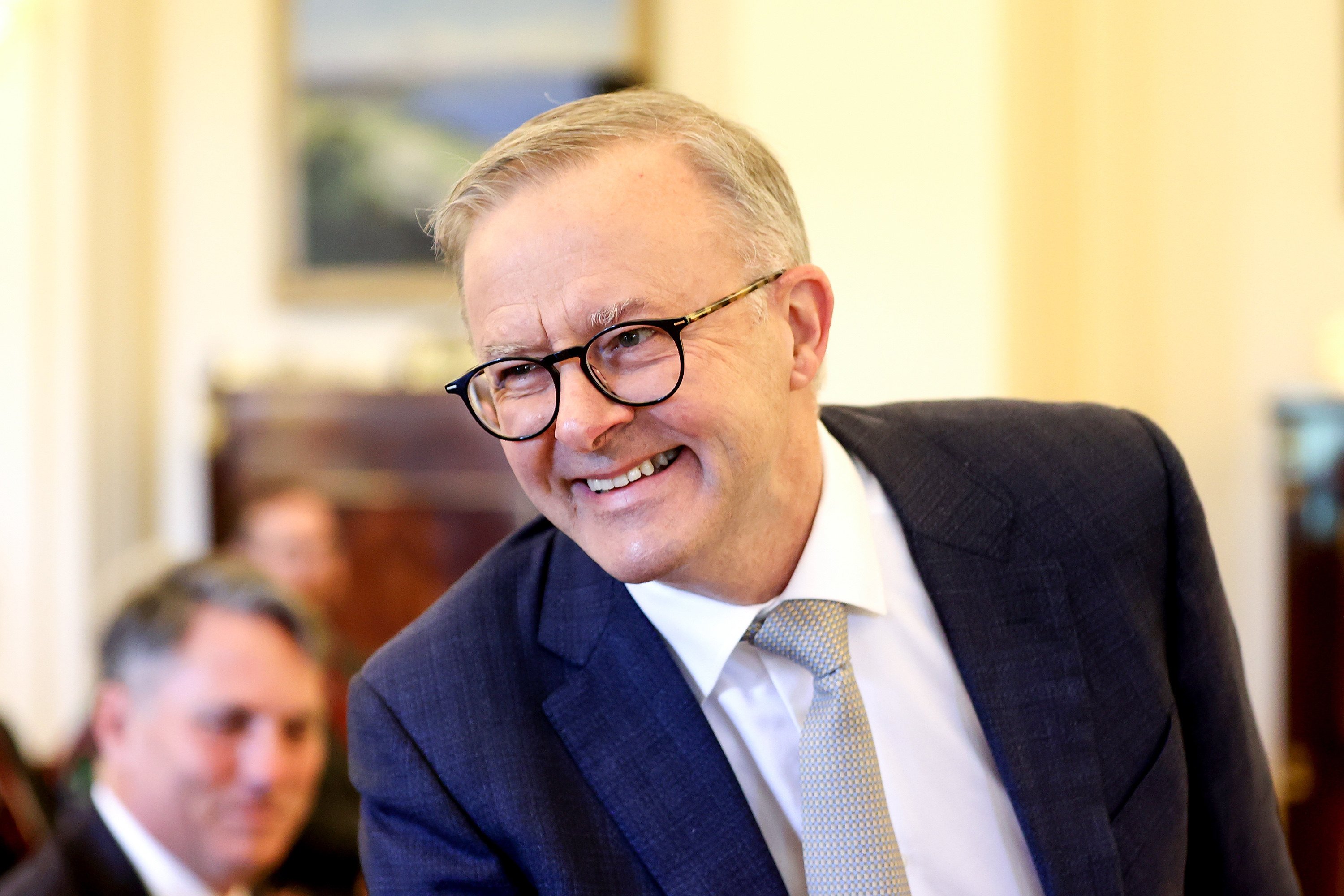Anthony Albanese has ruled out phasing out live sheep exports within his first term of government.
The prime minister reaffirmed his government’s commitment to ending the trade but said it would consult sheep farmers and the Western Australian government before committing to a timeline.
“No one’s envisaging a phase-out in this term of government,” Albanese told ABC radio in Perth on Friday.
Before the federal election in 2019, Labor promised to phase out the trade over five years but has since refused to commit to a timeline.
“We’ve said that we want to phase out the industry,” Albanese said. “We haven’t put a timeframe on that because we want to make sure that we consult with farmers, make sure that they’re looked after, make sure as well that we consult with the WA government, and it is particularly affected given the nature of where the industry is located.
“We’ll work that through cooperatively to ensure we get a win-win situation.”
The live trade has shrunk from 2m sheep a year in 2017 to 600,000, following international outrage over sheep deaths from heat stress and a ban on exporting to the Middle East during the northern summer.
The RSPCA has called for Labor to stick to the proposed five-year phase-out.
Its chief executive, Richard Mussell, said it was “crucial” that legislation to shut down the industry be passed in this term of parliament, “even if that end date goes beyond this”.
“This volatile and disaster-plagued industry has been in terminal decline for some time; Research shows that a sheep processed in Australia will contribute much more to the Australian economy than life exporting the animal,” he said. “So putting an end date on live export in this term of parliament is not only the right thing to do for animal welfare but the right thing to do economically.”
A report commissioned by Animals Australia found that the significant reduction in export volumes since 2017 suggested the costs to farmers of moving away from the live export industry “may already have been incurred”.

It said there was no evidence that live sheep exporters were still paying a premium for sheep at WA sale yards. It disputed the argument that the prices paid by live exporters were underwriting the farm gate price for Australian sheep.
“Since the effective curtailment of the live sheep export trade to the Middle East during the Northern Hemisphere summer, farm gate prices for WA sheep farmers have not crashed, and the sheep displaced from the live sheep export trade have found other uses and markets,” it said.
Dr. Jed Goodfellow, the policy director of the Alliance for Animals, said the trade was “fundamentally cruel”. He said that killing and processing sheep in WA for export to the Middle East was a better animal welfare outcome and would create more local jobs.
“Transitioning the small remaining number of exported sheep into domestic processing is a win-win outcome,” Goodfellow told Guardian Australia. “It will create more jobs and value-adding opportunities in regional Australia and contribute more overall to the economy.”
The Western Australian Farmers Federation and the WA agriculture minister’s office have been contacted for comment.











